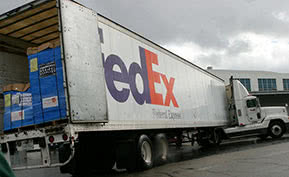Cloud Security
Tax Solutions
Cloud Security Tips for Tax Season

Every year, people seem to say, “The past year was the worst in history for data leaks.”
In 2017, that was the case again. From the terrifying Equifax data leak to the hack of literally every single Yahoo email account, 2017 truly was a banner year for data breaches. This means that in 2018, protecting sensitive information online is more crucial than ever before.
Safeguarding sensitive information is no longer up to the IT department. It’s important for small business HR professionals to be aware of basic cloud security strategies to prevent hackers from accessing employee and clients’ personal information. Preventing scammers from committing tax fraud with stolen data is of the utmost importance as the 2018 tax season begins. Here are some tips to help get you started:
Tax-Related Safety
Technology is changing the way that we do our taxes, and with an increasing number of people filing their taxes online, maintaining security is vital to staying safe. Villanova University warns, “One major concern facing the IRS is the same as that of many private companies: lack of adequate website cybersecurity to ensure a hack-proof user interface.” Though recommended tips may sound annoying and repetitive, they truly are great defenses against hackers who want to access private information.
A good start is to practice proper password security. Make sure to use a unique password for each online account, especially those related to your finances. Do not make passwords easy to guess; a combination of random numbers, special characters and letters of various cases will be the most difficult to crack. For added security, make sure to update all passwords regularly.
While it is annoying, always update your software when prompted. Apps, programs and operating systems constantly release new versions of their software, which will often fix problems that hackers could have exploited to find sensitive information. Stay one step ahead, and eliminate any frustration, by turning on automatic updates.
Remain vigilant about protecting your information. Even though the 2018 filing season has not started yet, the IRS has already reported an increase in fraudulent activity. Staying aware before, during, and after tax season will help safeguard your employees and company from falling victim to hackers and scammers.
Education
Perhaps the biggest line of defense against tax fraud and identity theft is education. Take the same approach as the IRS does: educate about the dangers of data thieves and tax fraud as much as possible. You can protect yourself, your employees and your company by knowing common risks to data security.
Teach employees about extra steps they can take to protect themselves and the company. Some quick lessons include:
- Show them the government recommended security tips. Help them create diverse, strong passwords and turn auto-updates on for their devices.
- Help employees turn on multi-factor authentication, which protects personal information even if a hacker accesses an account.
- Lock devices when they aren’t in use, especially if in a public place. This is an easy way to deter people who might otherwise steal information if devices are left unattended.
- Remember that government agencies will never ask for personal information or money on the phone or via email.
- Explain what a scam looks like, so they don’t fall for one. Do not open strange emails or click on attachments and the links in them. Even if the scammers are unsuccessful, don’t forget to report it to the IRS.
Encryption Technology
Even if your employees adapt to these changes quickly and well, there’s a chance that hackers can still obtain private accounts and data. There are myriad common risks to data security, even with proper safety measures in place. Luckily, technology has made strides to prevent hackers from accessing personal data.
Encryption is a basic but key way to protect tax information. While hackers may still be able to find it, the content is impossible to read without the correct key which the recipient has. Encryption can happen on many levels, from individual emails to entire servers. Secure file sharing platforms and even double encryption can also keep unwanted recipients from accessing data.
Another way to secure tax documents is with an electronic signature. If you’ve ever signed a PDF, you know how unofficial online signatures can feel. However, an online signature is as legally binding as a handwritten one. Digital signatures are secure, despite beliefs to the contrary. With encrypted servers and uniquely generated user ID numbers, your signature on your online W-2 is likely more secure than your email account.
Despite these safety advancements, closely examine your company’s security measures. Look for ways to improve cloud security in your office. If you know the weaknesses in your security, you will better understand how to handle a breach and how to identify where it came from.
Small changes like this continue to make filing taxes online safe than ever. Though these technological advances are great assets to maintaining security, the (current) best defenses against hackers are increased awareness of these issues and teaching people simple ways to help prevent breaches. Even though hackers will try to figure out a way around new forms of protection, making things more difficult for them can’t hurt.
Photo courtesy of Pexels user Pixabay





